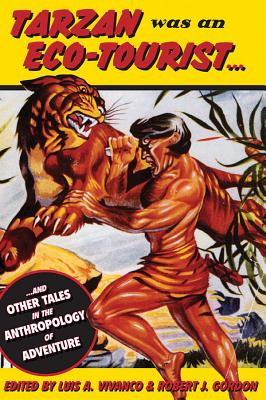Adventure is currently enjoying enormous interest in public culture. The image of Tarzan provides a rewarding lens through which to explore this phenomenon. In their day, Edgar Rice Burrough's novels enjoyed great popularity because Tarzan represented the consummate colonial-era adventurer: a white man whose noble civility enabled him to communicate with and control savage peoples and animals. The contemporary Tarzan of movies and cartoons is in many ways just as popular, but carries different connotations. Tarzan is now the consummate "eco-tourist: " a cosmopolitan striving to live in harmony with nature, using appropriate technology, and helpful to the natives who cannot seem to solve their own problems. Tarzan is still an icon of adventure, because like all adventurers, his actions have universal qualities: doing something previously untried, revealing the previously undiscovered, and experiencing the unadulterated. Prominent anthropologists have come together in this volume to reflect on various aspects of this phenomenon and to discuss contemporary forms of adventure.
| FindBook |
有 1 項符合
Tarzan Was an Eco-Tourist: ...and Other Tales in the Anthropology of Adventure的圖書 |
 |
Tarzan Was an Eco-Tourist: ...and Other Tales in the Anthropology of Adventure 作者:Vivanco 出版社:Berghahn Books 出版日期:2006-08-01 語言:英文 規格:精裝 / 340頁 / 普通級 |
| 圖書館借閱 |
| 國家圖書館 | 全國圖書書目資訊網 | 國立公共資訊圖書館 | 電子書服務平台 | MetaCat 跨館整合查詢 |
| 臺北市立圖書館 | 新北市立圖書館 | 基隆市公共圖書館 | 桃園市立圖書館 | 新竹縣公共圖書館 |
| 苗栗縣立圖書館 | 臺中市立圖書館 | 彰化縣公共圖書館 | 南投縣文化局 | 雲林縣公共圖書館 |
| 嘉義縣圖書館 | 臺南市立圖書館 | 高雄市立圖書館 | 屏東縣公共圖書館 | 宜蘭縣公共圖書館 |
| 花蓮縣文化局 | 臺東縣文化處 |
|
|
圖書介紹 - 資料來源:博客來 評分:
圖書名稱:Tarzan Was an Eco-Tourist: ...and Other Tales in the Anthropology of Adventure
|









